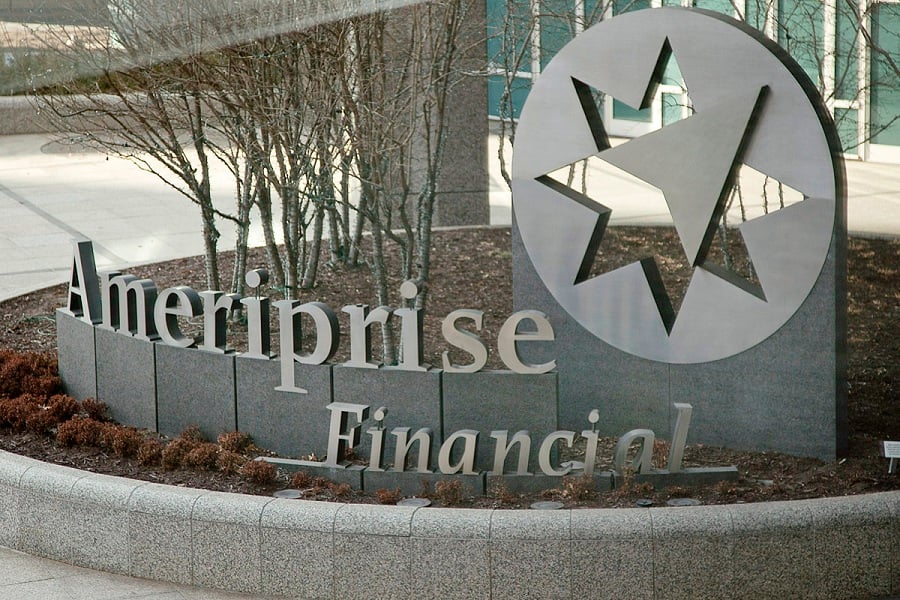In a show of just how expensive the Labor Department's fiduciary rule
could prove for broker-dealers, Ameriprise Financial Inc. executives said the firm has shelled out more than $11 million in the first half of the year in the name of compliance with the regulation.
Ameriprise, which has a national network of approximately 10,000 advisers, incurred a $7 million expense related to “DOL planning and implementation” in the second quarter, according to a
release announcing the company's quarterly earnings results.
During a first-quarter earnings call, the firm's chief financial officer, Walter Berman, indicated Ameriprise spent an additional $4 million to $5 million on DOL-related items.
Combined with second-quarter expenses, that makes for $11 million to $12 million in total DOL-related costs.
These costs weren't only incurred by Ameriprise's Advice and Wealth Management group, but rather across the entire enterprise. However, these “incremental” expenses occur “particularly in AWM,” according to Mr. Berman.
Similarly, Cambridge Investment Research Inc., an independent broker-dealer with approximately 3,000 advisers and an estimated $750 million in revenues for 2016, will spend in excess of $10 million as of the fiduciary rule's implementation date next April, according to president Amy Webber.
“I believe that's just the beginning, because you have to do all this planning and work, get it implemented,” Denise Valentine, a senior analyst at Aite Group, said of the multimillion-dollar expenses. “That's part and parcel to anything major like this.”
These sorts of expenses highlight the difficulty some broker-dealers,
especially small and midsized firms, may face due to regulatory pricing pressures.
“The regulatory environment will likely lead to consolidation within the industry which we have already seen,” Jim Cracchiolo, chairman and chief executive of Ameriprise, said during the second-quarter earnings call. “Independent advisers or independent broker-dealers may lack the resources or the scale to navigate the changes required.”
Ameriprise has “about 400 people dedicated to this right now,” Mr. Cracchiolo said, in reference to resources dedicated to DOL compliance.
“There will be a stress” for firms with revenues of $100 million and less, maybe even $250 million and less, according to Ms. Webber of Cambridge.
Broker-dealers are overhauling or will need to overhaul client-facing and back-office (compliance and documentation) processes, as well as technology, in response to the DOL regulation, Ms. Valentine said.
In a May 2016
presentation for investors and analysts, LPL Financial Inc., the country's largest independent broker-dealer, said ongoing costs related to the DOL rule will be less than initial implementation costs, and driven by compliance oversight and cost of insurance.
A spokeswoman declined comment on the firm's DOL-related compliance spending.
Of course, some costs will scale with the size of the firm, and smaller firms can outsource certain functions such as technology to mitigate costs, Ms. Valentine said. However, some expenses will be universal, she said.







